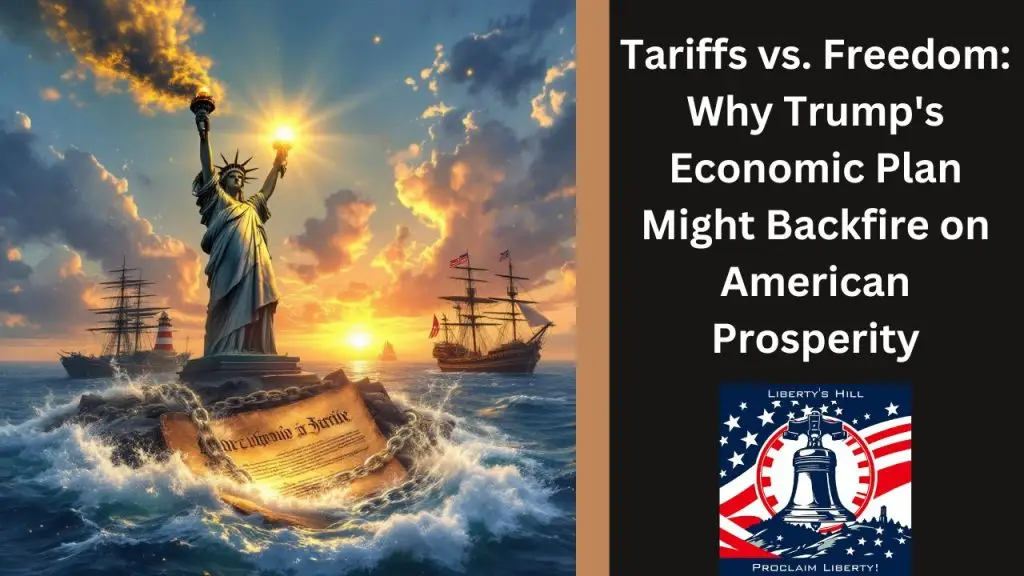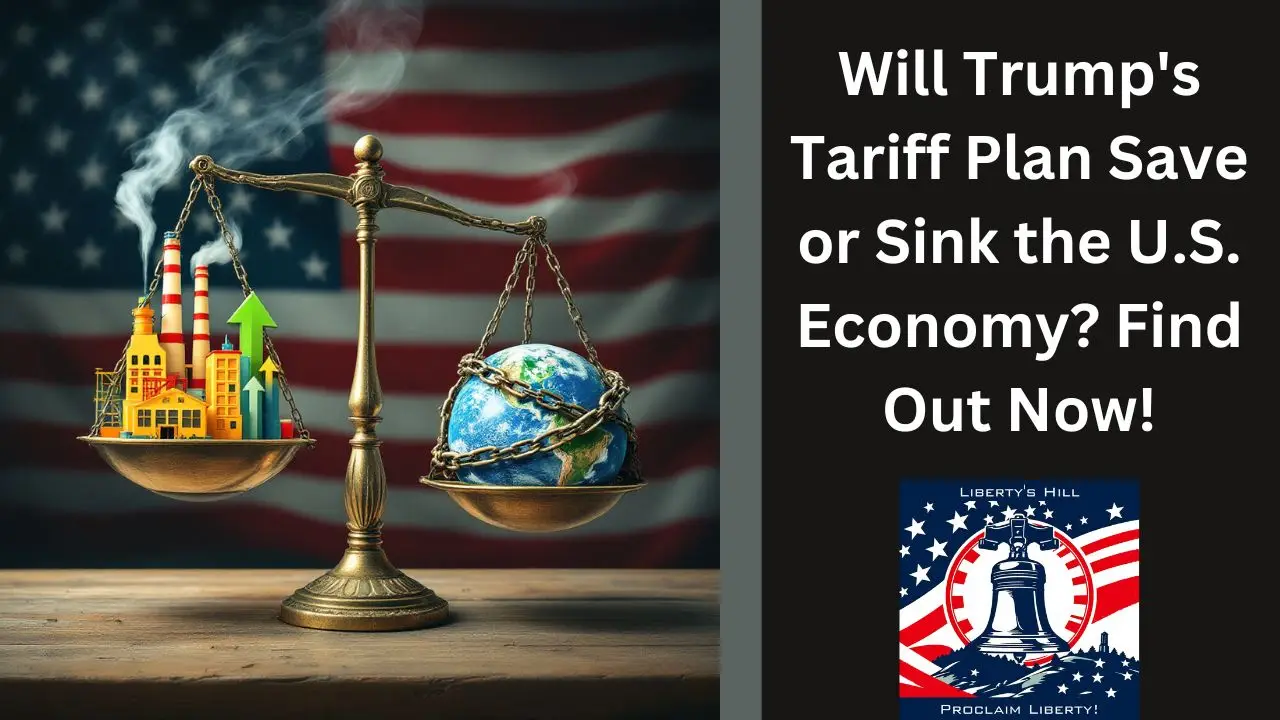Understanding Trump’s Tariff Policies and Their Impact on National Identity and Values

In exploring the implications of Trump’s tariff policies, it’s essential to consider how these economic strategies intersect with America’s national identity and foundational values. This discussion delves deep into the significance of free markets, government intervention, and the principles of liberty that have historically defined American prosperity.
America as a Beacon of Hope
For many around the globe, America symbolizes a beacon of hope for liberty and human flourishing. This perspective is rooted in the belief that when we adhere to our founding principles, we can cultivate a society where dignity and prosperity thrive. The positive impact of free markets, the rule of law, and moral governance has been evident in the increased standard of living for countless people worldwide.
Countries that have embraced these principles, albeit to varying degrees, have witnessed significant economic growth. Nations like Russia, India, and China have seen their GDPs rise dramatically, improving the quality of life for billions. This phenomenon highlights the critical role that free trade plays in fostering global economic development.

Photo by Jeremy Bishop on Unsplash
However, Trump’s plan to eliminate income tax in favor of tariffs raises serious concerns. History and economic theory suggest that such a shift could have detrimental effects not just on Americans but on the global economy as well. While it is undeniable that many Americans are facing economic hardships, attributing these issues to the growth of China’s economy is misleading. The real culprits are government overspending and interventionism that favor special interests—factors that tariffs would exacerbate.
Understanding Tariffs as Government Intervention
Tariffs are a form of government intervention that can stifle economic growth and diminish national wealth. Although they may provide temporary benefits to specific industries, the broader impact is often negative. When tariffs are implemented, they not only affect the targeted industries but also ripple through the economy, resulting in higher prices, reduced employment, and lower living standards.
The rationale behind imposing tariffs often stems from the belief that they will bring industries back to America and create jobs. This “America First” rhetoric, however, does not align with economic reality. The principles of liberty that have historically driven American prosperity must be upheld to ensure that jobs and living standards improve.

Photo by Austin Distel on Unsplash
America’s identity as a leader in freedom and economic opportunity is at stake. We must recognize that global economic growth benefits all nations, including the United States. Rather than retreating into protectionist policies, we should embrace free trade, which has consistently proven to elevate living standards worldwide.
The Role of Biblical Principles in Economic Policy
As a pastor, I believe the church has a critical role in teaching and promoting biblical principles that align with liberty and human flourishing. For example, Leviticus 24:22 emphasizes equality under the law, which can be applied to contemporary economic policies. The failure of the church to teach these truths has led many Christians to support tariffs, believing they serve national interests, without recognizing the detrimental effects on liberty and prosperity.
Tariffs can create a different set of laws that favor special interests, undermining the very principles of liberty that America was founded upon. When we examine the rhetoric around tariffs, it often reflects a misunderstanding of how economic relationships should function. Forcing industries to relocate or create jobs through tariffs can lead to resentment and bitterness, which is counterproductive to the flourishing we seek.

Photo by Michael Jasmund on Unsplash
Understanding these principles is vital for discerning rhetoric and policies that genuinely promote human flourishing. Many proponents of tariffs are well-meaning individuals who desire to see America thrive, yet they may be misguided in their approach. We must advocate for policies that align with the core values of liberty and justice for all people, not just those within our borders.
The Importance of Global Perspective
When we adopt an “us versus them” mentality, we hinder our ability to foster positive relationships with other nations. Jesus’ teachings in Matthew 5:43-45 encourage us to love our enemies and bless those who curse us. This perspective is essential when considering how to respond to unfair trade practices from other nations. Instead of retaliating with tariffs, we should seek to build bridges and promote mutual prosperity.
The fear of China surpassing the U.S. in GDP should not drive our policies. Instead, we should celebrate the economic progress of others, recognizing that it creates competition that ultimately benefits workers and improves their conditions. Embracing free markets allows for greater liberty and flourishing, not just for Americans but for people across the globe.

Photo by Louis Renaudineau on Unsplash
As we assess our national identity, we must remember that the core of American greatness lies in its commitment to freedom. Straying from these principles out of fear only serves to weaken our position as a global leader. We should focus on reducing government intervention, cutting spending, and deregulating industries to support the flourishing of all citizens.
Conclusion: Embracing Liberty for All
In conclusion, the discussion surrounding Trump’s tariff policies is not merely an economic debate; it is a question of national identity and values. We must reaffirm our commitment to the principles of liberty and human flourishing that have historically defined America. By doing so, we can ensure that our nation remains a beacon of hope for people everywhere.
Let us engage in thoughtful dialogue about how to best support American citizens while also fostering global prosperity. The future of our nation and its role in the world depends on our ability to navigate these challenges with wisdom and integrity.
Please share your thoughts in the comments below and consider subscribing for more discussions on liberty, justice, and human flourishing.


